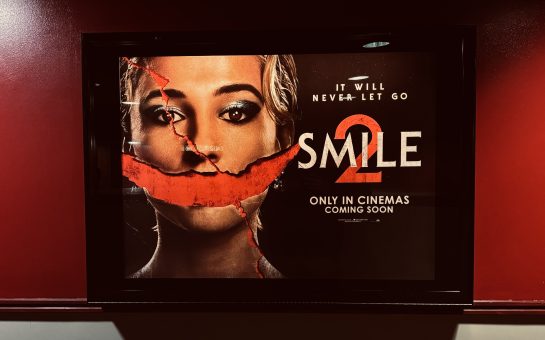What makes this film by Kitty Green stand out is its deft portrayal of workplace toxicity that enables abuse of power to go unchallenged.
The low-level hum of forced submission, in the face of an all-powerful boss, silences questioning and renders the lifting of one’s head above the parapet to query it ridiculous.
It’s the least powerful within this environment- the freshly graduated assistant – Jane (Julia Garner) who does just that.
Day-to-day Jane does a lot of printing – a lot of head shots of girls.
She cleans the boss’s office – removes a hair tie from the floor and an earring from near the couch.
Her concerns, about what goes on behind the boss’s closed door, reach a crescendo when a young girl arrives at the office. A new assistant whose existence she has not been made aware of.
The girl signs a document, after asking if she needs a lawyer, and is then sent in a taxi with Jane to a hotel.
“Is this where they put you when you started?” she asks Jane.
“No,” comes the reply.
Jane drops her off and returns to the boss’s office.
A group of five men and one woman walk in for a meeting with the boss. One of the men goes to sit down and is told: “Never sit on the couch.” The statement is followed by a chorus of chuckling.
The boss is not there, he’s at the hotel, with the girl.
“What can we do?” Jane asks a male colleague in HR.
“Do about what?” is the response.
An accusation of jealousy follows, and Jane’s complaint is written off as “bullshit” that wouldn’t “come off well”.
She retracts it.
Not all is lost though… Jane is reassured she’s not “his” (the boss’s) type.
“He”, the boss, is never given a name or any screen time. This is intentional.
“I wasn’t trying to explore the bad apples. The film’s pointing to a larger problem, a systemic problem- a cultural problem, essentially- that still continues.” Kitty Green told The Independent.
The film was released in a matter of weeks after Harvey Weinstein began his 23-year prison sentence and is inspired by tales of women working in the film industry. But it’s clear the story told isn’t of just one man and one industry.
The choice to not have either perpetrator or victim at the centre of the film is intriguing. The focus is on the how, not the what or the why, and that is what Green believes will create change.
The argument seemingly, is that by not having enough women in positions of power this behaviour will go unchecked. The film turns the assumption that the assistants of predators are enablers on its head.



